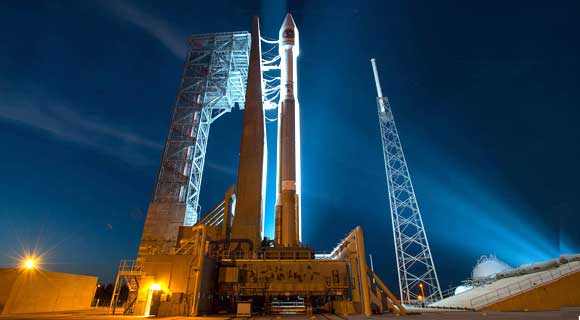Atlas V Rocket To Launch Orbital ATK’s Cygnus Spacecraft To ISS Tuesday
By Space Coast Daily // April 17, 2017
Launch Window Opens at 11:11 a.m. TUESDAY

BREVARD COUNTY • KENNEDY SPACE CENTER, FLORIDA – Here are the details surrounding the launch of United Launch Alliance’s Orbital ATK’s Cygnus Spacecraft’s mission to the International Space Station.
This is the seventh contracted commercial resupply services trip.
Rocket/Payload: A United Launch Alliance Atlas V 401 will launch Orbital ATK’s Cygnus™ spacecraft on the initial leg of its cargo resupply mission to the International Space Station (ISS).
Date/Site/Launch Time: Tuesday, April 18, from Space Launch Complex-41 at Cape Canaveral Air Force Station. The 30-minute launch window opens at 11:11 a.m. EDT.
Mission Description: Orbital ATK developed the Cygnus advanced maneuvering spacecraft to perform ISS cargo delivery missions under the Commercial Resupply Service (CRS) contract with NASA. At a total weight of approximately 7,225 kg (15,928 lb), OA-7 will include approximately 3,380 kg (7,452 lb) of internal cargo and an 83 kg (183 lb) external deployer carrying CubeSats.
Launch Notes: This mission marks the third time ULA’s Atlas V has launched Orbital ATK’s Cygnus™ spacecraft on its way to the ISS. OA-7 will be the 71st launch of the Atlas V rocket since its first launch in 2002. The Atlas V 401 configuration rocket has flown 35 times, supporting a diverse set of missions, including national security, science and exploration, commercial as well as International Space Station resupply.
Space Cost Daily will carry the launch live on Space Coast Daily TV starting at 10 a.m.
CLICK HERE FOR NASA AND SPACE NEWS














